The Talented Mr. Henry
Donning a yellow CasaBlanca windbreaker, a burgundy hat, and layers of silver and beaded chains from his personal jewelry collection, Brian Tyree Henry launches into a spin move.
“Come on! You too!,” he exclaims, encouraging stylists, staff, and crew to join him in performing synchronized dance moves all too instinctual for generations of Black Americans: the Electric Slide.
It’s a windy Monday afternoon and we’re inside a private studio in Philadelphia for his Of the Essence cover shoot–a career benchmark, as he describes it–listening to his playlist aptly titled “Phill’in Myself.” It’s a signature mix of soul, groove and dance music that he’s been adding to consistently while working in town. With his first-ever Academy Award nomination under his belt, critical acclaim falling at his feet with each new film role and amid production for the new Apple TV+ action drama Sinking Spring that he’s producing and starring in, there’s a lot to keep the actor light on his feet.
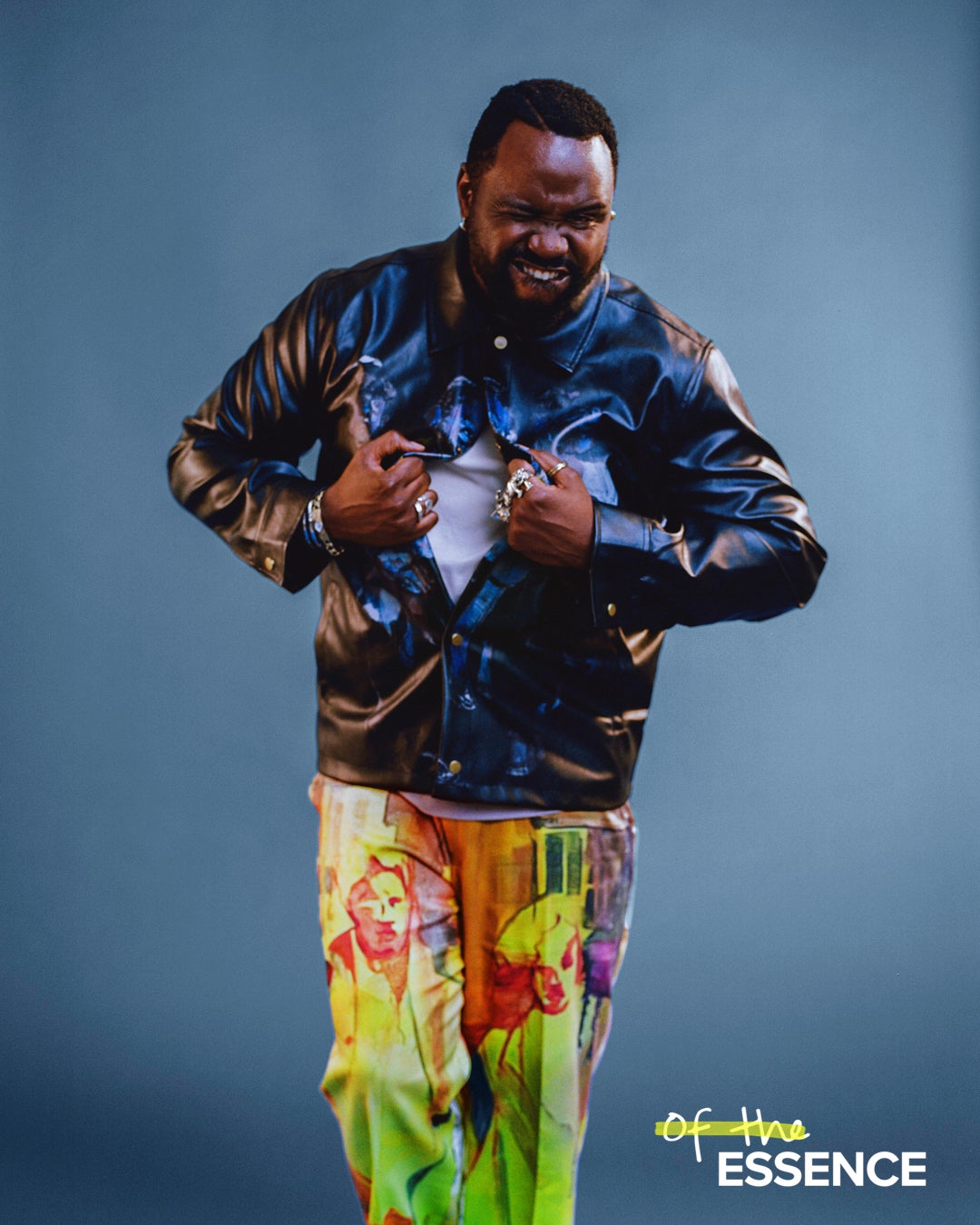
“I think that all of this success, all of these projects, all of these places I’ve been, are truly just a culmination of people saying, ‘give it a shot,’” Henry says. “I don’t want that oil to burn out.”
Having gotten his start in theater, Henry has always aimed as high as possible with any script placed in front of him, bringing additional flair and depth to his characters no matter what role he was handed. “There was one play that I did at Yale where I was actually a tree. I’m not joking–I was a tree,” he recalls, laughing. “Even in that play, I thought, ‘well, okay. There’s still something to be said.’ Even if I’m a tree, there’s still some emotional life that’s going on. This tree is a living, breathing thing. It provides so much. So how can I find a way to show that?’”
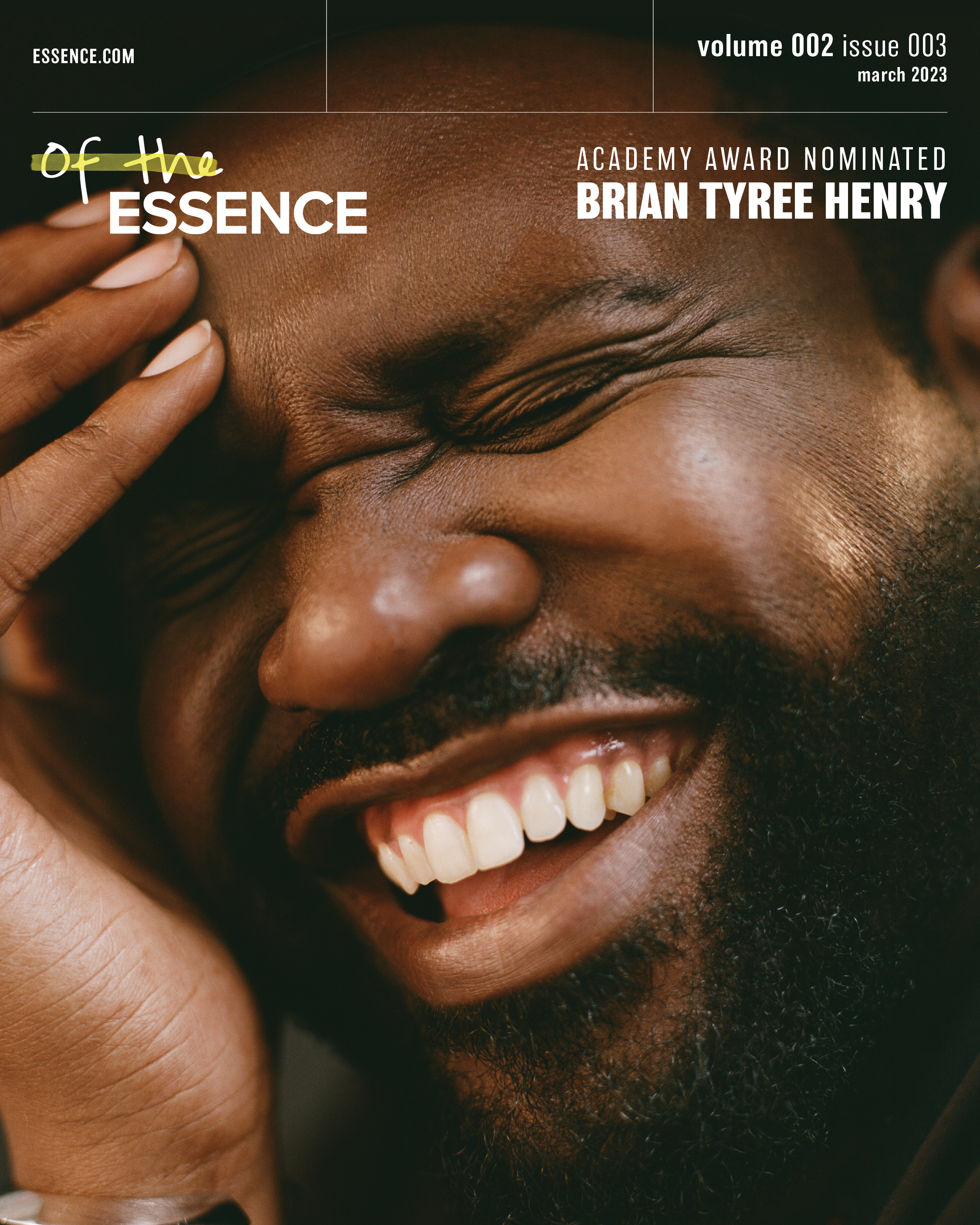
With his dexterity on the stage, the actor wasn’t in a tree costume much longer. Shortly after graduation from Yale School of Drama, Henry starred as Tybalt in a production of Romeo & Juliet at the famed Shakespeare in the Park. He then made his Broadway debut in 2011 in the original production of The Book of Mormon as The General. This quickly led to supporting roles on HBO’s critical darlings Boardwalk Empire and The Knick. But his big break was just over the horizon.
In 2016, he burst onto the scene as Alfred “Paper Boi” Miles, a trap-rapper on the rise with conflicting emotions on art and fame and a palpable pain bubbling just under the surface, in FX’s hit surrealist comedy Atlanta. Since the show’s September premiere that year, Henry has earned a Tony nomination for Best Featured Actor in a Play for his return to Broadway in a limited revival of Lobby Hero and earned two Primetime Emmy nominations–one in 2017 for Outstanding Guest Actor in a Drama Series for This Is Us and another in 2018 for Outstanding Supporting Actor in a Comedy Series for Atlanta.
“He’s rude with an H. You know what I’m saying?,” says Atlanta creator and costar Donald Glover, likening Henry’s bold and stylized character delivery to the urban luxury brand Rhude. “People relate to the fact that he kind of emotes in a way that they wish they could. And I think I feel that as an actor, honestly.”
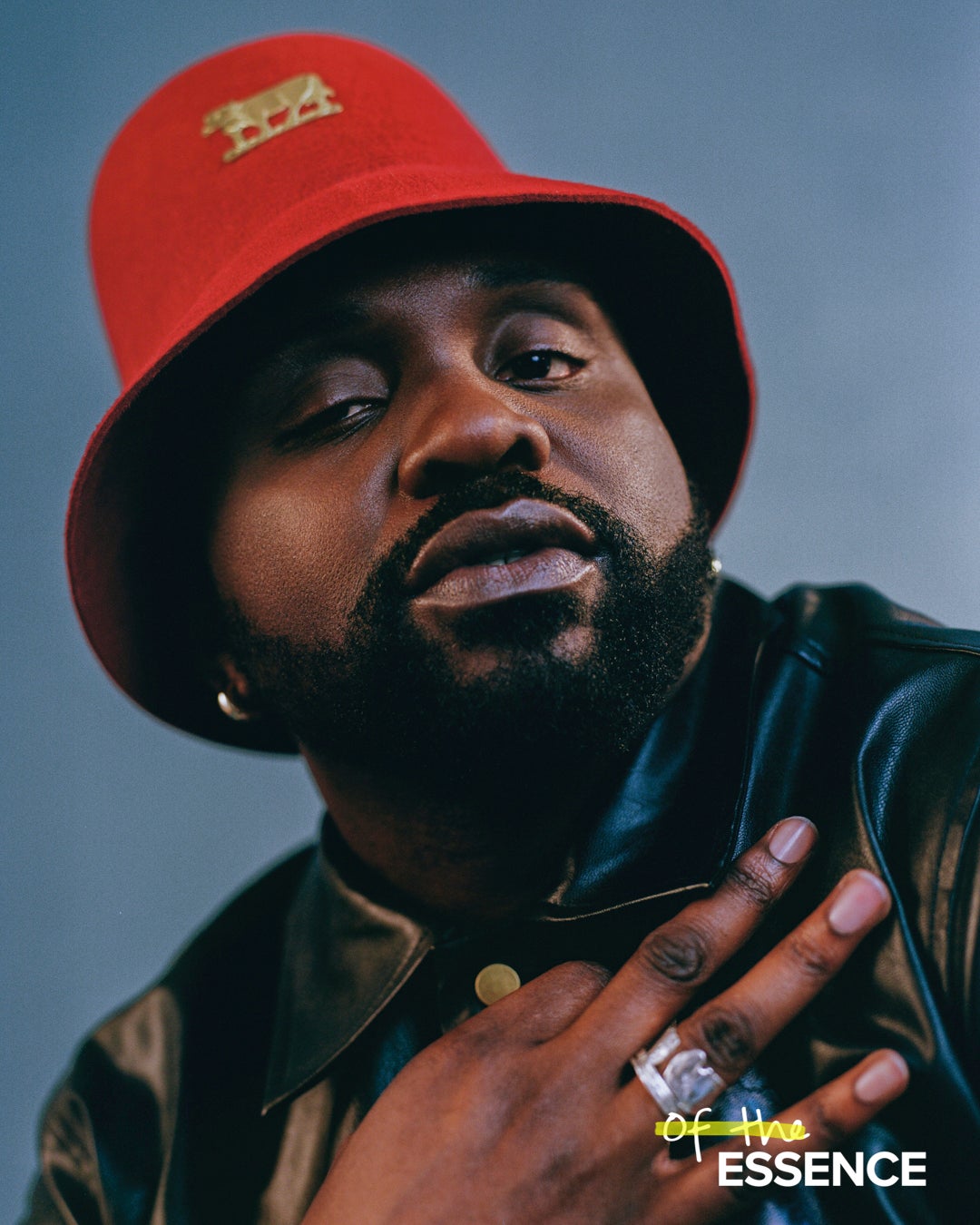
Henry’s managed to exclusively portray a wide range of unique characters that leave a lasting impact, no matter how long they’re on screen. From Eternals’ Phastos, a centuries-old cosmic engineer dejected and world-weary after creating the avenue that led to a massive loss of human life, to Bullet Train’s Lemon, a blonde-haired assassin with a soft conscience and an uncanny ability to read people, Henry consistently delivers performances that are nuanced, complex and hold an apparent vulnerability resting just behind their eyes, despite their tough exterior.
“Brian holds this magnetic force that can pull you in without you even realizing what he’s done,” says Causeway producer and star Jennifer Lawrence. “His range is phenomenal–Brian can do it all. It’s rare to find someone who can jump from drama to comedy to action to everything in between, but he never falls short.”
The combined swagger and sensitivity with which Henry approaches the men he plays on screen has unsurprisingly earned him one of Hollywood’s highest honors–an Academy Award nomination for Best Supporting Actor for his role in the critically lauded emotional drama Causeway. He’s the only Black male actor to receive an Oscar nomination this award season.
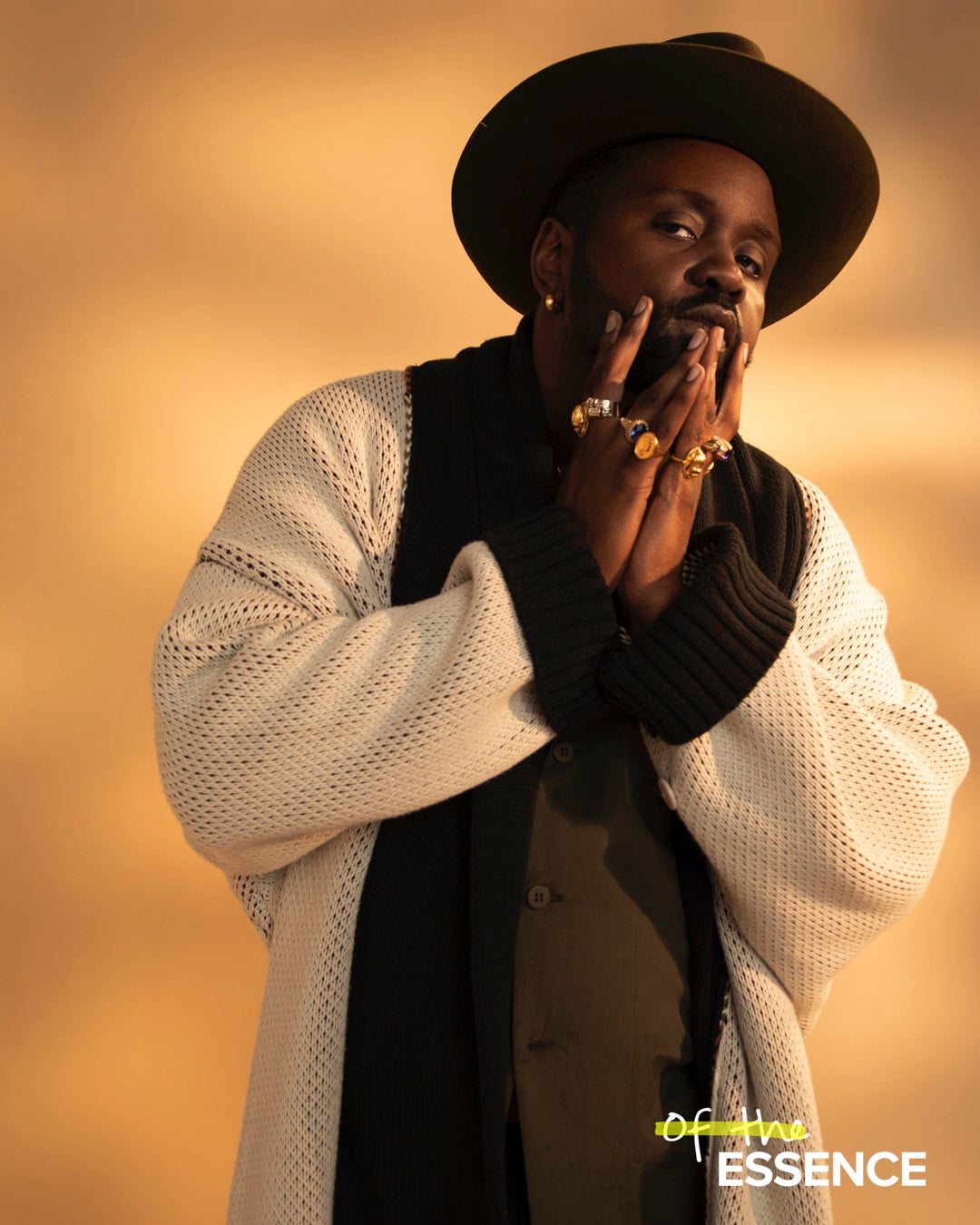
Henry portrays James Aucoin, an auto mechanic alienated from his family and disconnected from the community after suffering the loss of his young nephew and his left leg in a grisly collision on the New Orleans bridge of the same name.
“Brian really brings his heart to this film by forming this character that is so subtle yet so powerful,” adds Lawrence. “He manages to be both controlled and unique at the same time and can say so much in any given moment, even just a pause. He was so committed to this role, and it shows.”
His subdued yet pointedly heart-wrenching performance has resonated deeply with critics and audiences due to its raw, revealing look at grief and isolation covered by the veneer of “I’m good” that is all too familiar for many coming to terms with a devastating loss. It’s for this very reason that embodying the character was a uniquely personal experience for Henry.
“James came at a time in my life where I needed to find a reflective surface in order to figure out a lot of parts of the pain and grief I was going through in my own personal life,” Henry says. “There was something about him that really tapped into me–dealing with the grief I was carrying in my life and the non-confrontational way that I chose to approach it by actually just wallowing in it.”
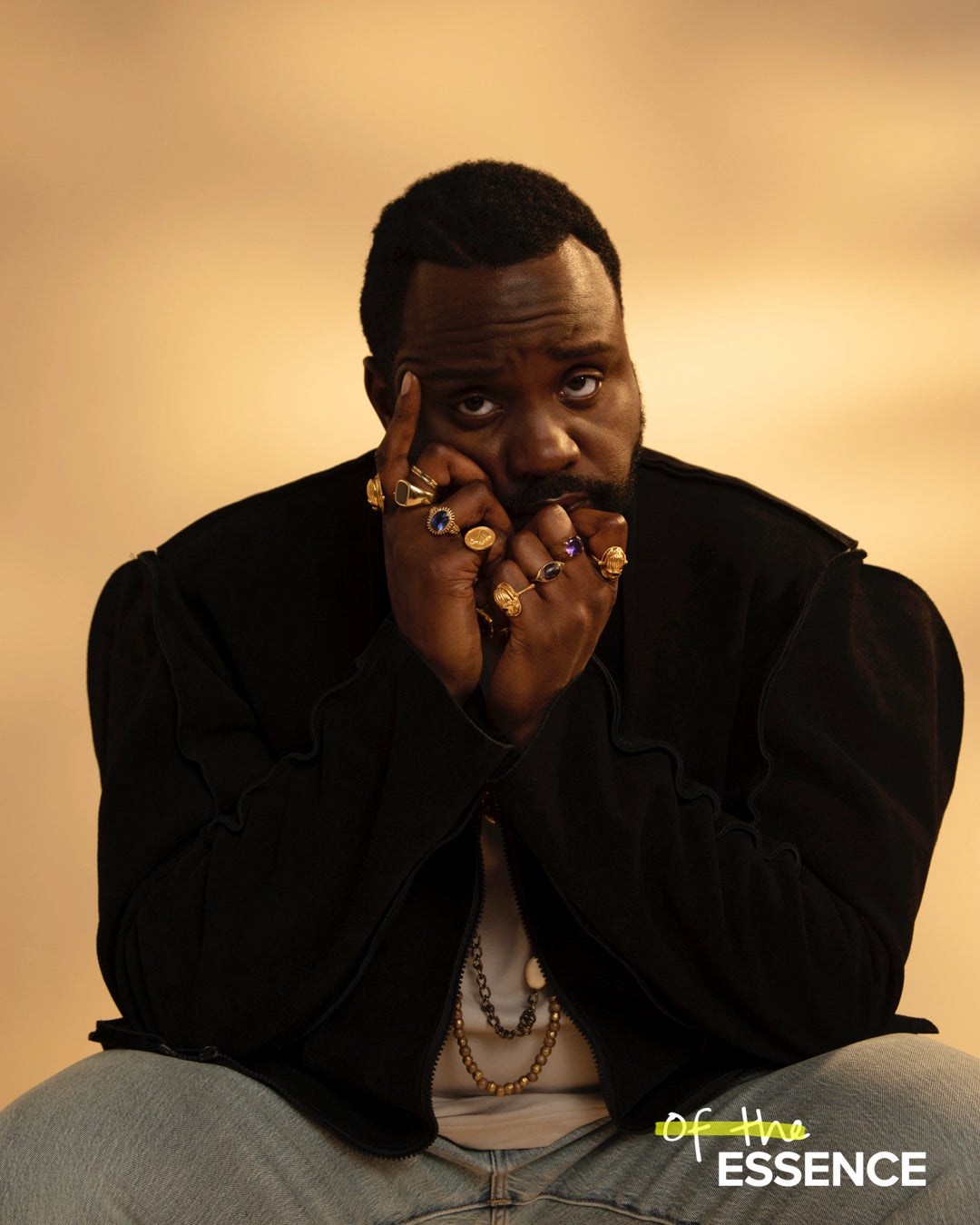
Henry tragically lost his mother, Willow Dean Kearse, in 2016 while wrapping Atlanta’s first season. He admits that he never fully faced the loss, instead remaining stagnant in grief while presenting himself to the world as fine. Confronted with a hidden part of himself in this character on the page, Henry found his own breakthrough by bringing him to life on screen.
“He allowed me an opportunity to truly vent, and to truly lay some of those burdens down in a way that I hadn’t really been able to with other characters from my past,” he explains.
Henry is clear that while his profession provides him a unique opportunity for self-reflection and actualization, it can’t ever replace the truest act of vulnerability–seeking help outside oneself.
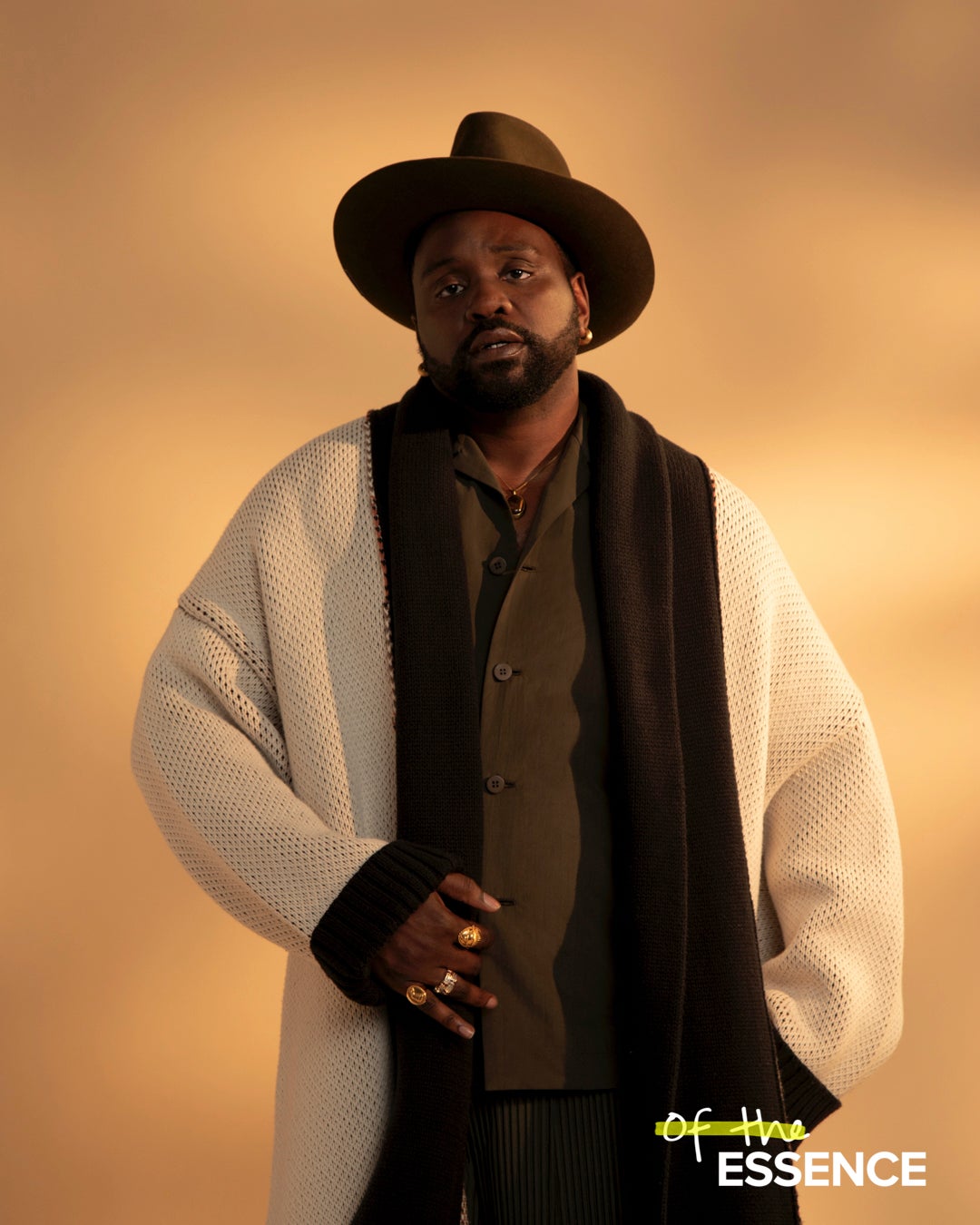
“I never want to confuse acting for therapy,” he says. “This is therapeutic, but therapy is therapy. And I want to encourage as many people as possible, especially Black people, to go to therapy. Our mental health is so important, but we’re often told that we don’t deserve that, we’re often told that we can’t have that, but we can. Self-care for us is so important.”
Speaking to the stereotypes that often halt that form of self-care, Henry adds, “There is nothing weak about feeling. There’s nothing weak about being a Black man who asks for help, or who actually doesn’t know the answer to how to get on the other side. Honestly, just bearing your heart and saying, ‘Hey, I don’t have all the answers–Hey, I actually need someone to tend to this wound,’ it actually brings about a greater strength.”
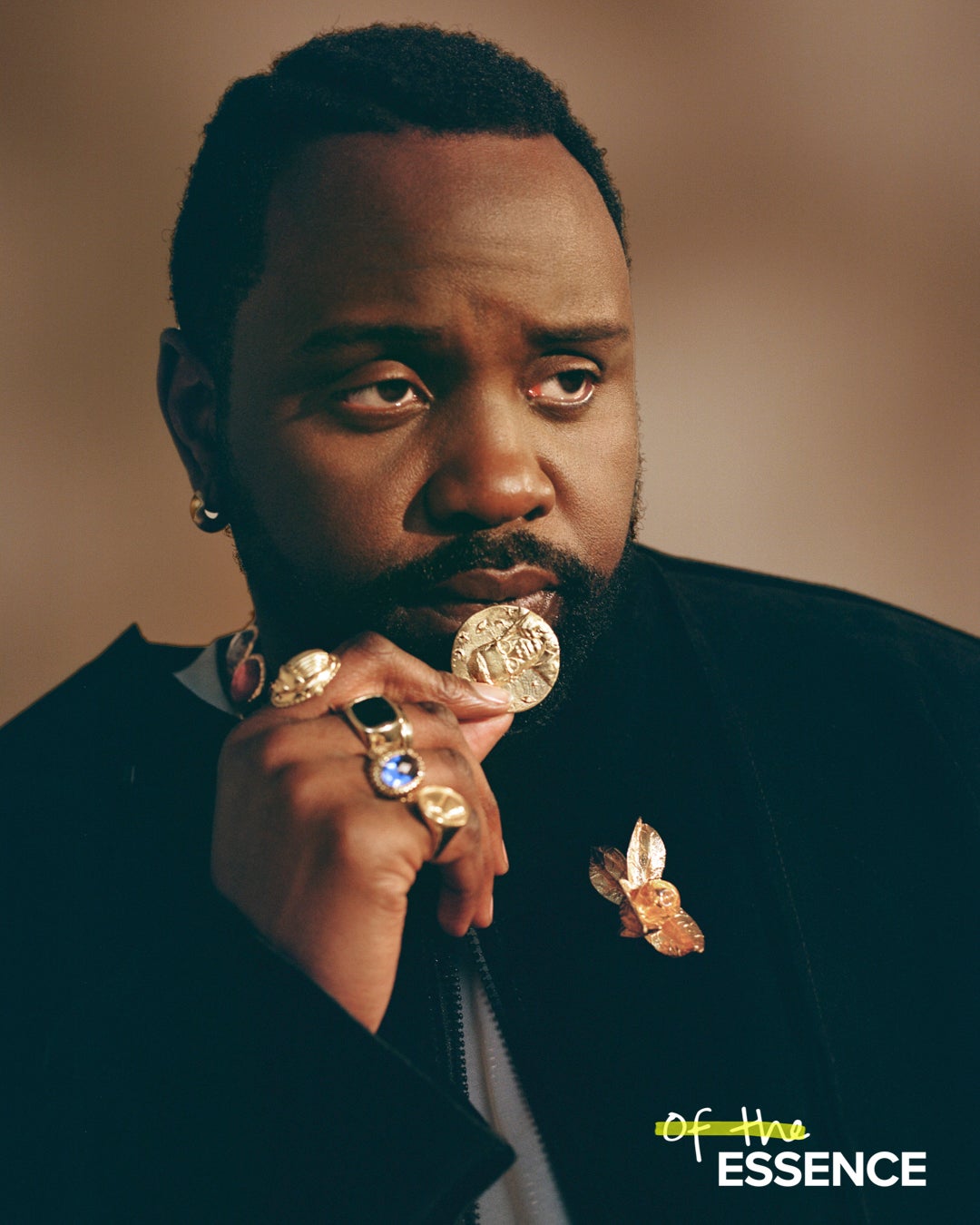
With a broad-shouldered 6’2” frame and dark-brown skin, Henry is keenly aware of how easy it is for people to misjudge him–in life and on screen. Though he’s Morehouse- and Yale-educated, Tony, Emmy, and Academy Award-nominated, and a literal Marvel superhero, Henry knows that’s not quite what everyone sees when they pass by a tall Black man on the street. Even now, with such accolades, the actor says he still sometimes gets confused as an extra on his own sets.
“In my existence, I realize you can, in one instance, bring people quite so much joy, and then in the other instance, bring people lots of fear,” he says. “And the same can be said about my success. The same can be said about my education. I think that the only way to combat any of that is to continue to live and exist, to wake up every morning and put both of my feet on the floor to stand up, and just brace what’s out there.”
It’s a self-assuredness and a resoluteness Henry says was imbued in him by Black women from an early age. Raised between Fayetteville, N.C., and Washington, D.C., with his mother and four older sisters, or “five moms” as he affectionately places it, and educated at all-Black institutions until he went to graduate school, Henry credits Black women with pushing him, encouraging his creativity and preparing him to take on the world and all its misconceptions.
“The way that I learned to hold my head up the very first time in my life was from a Black educator, a Black woman who saw me walking around with my head down. I used to always walk looking at the sidewalk,” he recalls. “I remember her pulling me aside and literally lifting my chin up and saying ‘You need to walk with your head up.’ I was like, ‘But how will I know where I’m going?’ And she told me, ‘You don’t know where you’re going because you’re not looking at where you’re going or what’s ahead. You’re only looking at where you’re at.’”
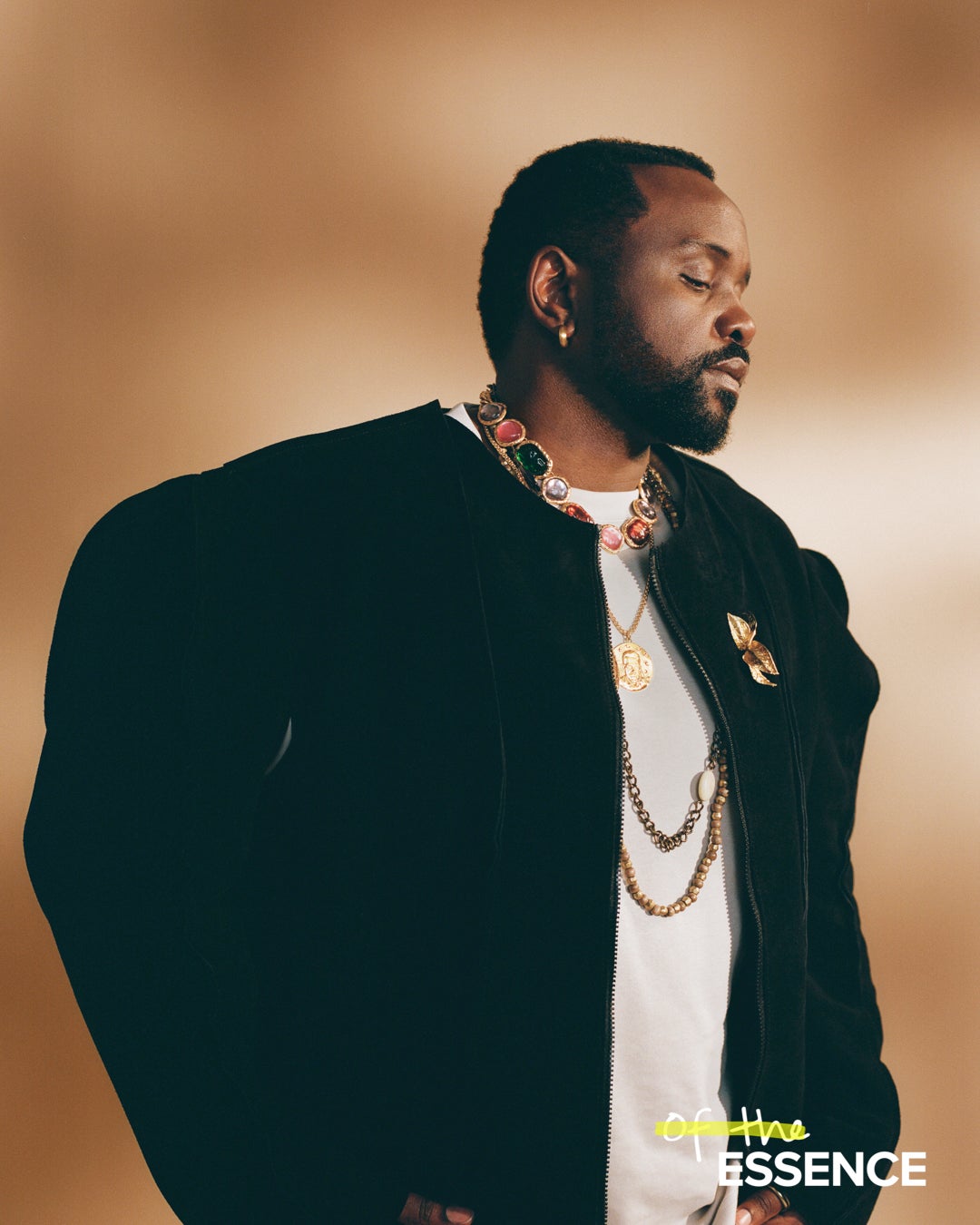
Henry has since kept a clear view of what’s in front of him, deciding the best way to tackle Hollywood is ensuring that you never know what his next move is.
“I always want to tip people’s minds on a little bit of an axis, skew their vision a little bit, because I don’t ever want people to think they have me pegged,” he says.
It’s a plan that has worked well to his advantage, earning him the respect of his collaborators, co-stars and even some of his idols.
While appearing on The Late Late Show with James Corden along with Angela Bassett—the actress he has publicly pinpointed as his number-one inspiration—on January 18, Henry was brought to tears by a surprise shower of admiration from the actress and fellow 2023 Academy Award nominee.
“I love what my eyes have laid sight on, and that is a completely brilliant artist whose work I’ve come to admire and to love,” Bassett told him. “I appreciate the work that you do and I hope to be lucky one day to work with you. Your vulnerability and sensitivity and strength–you just badass.”
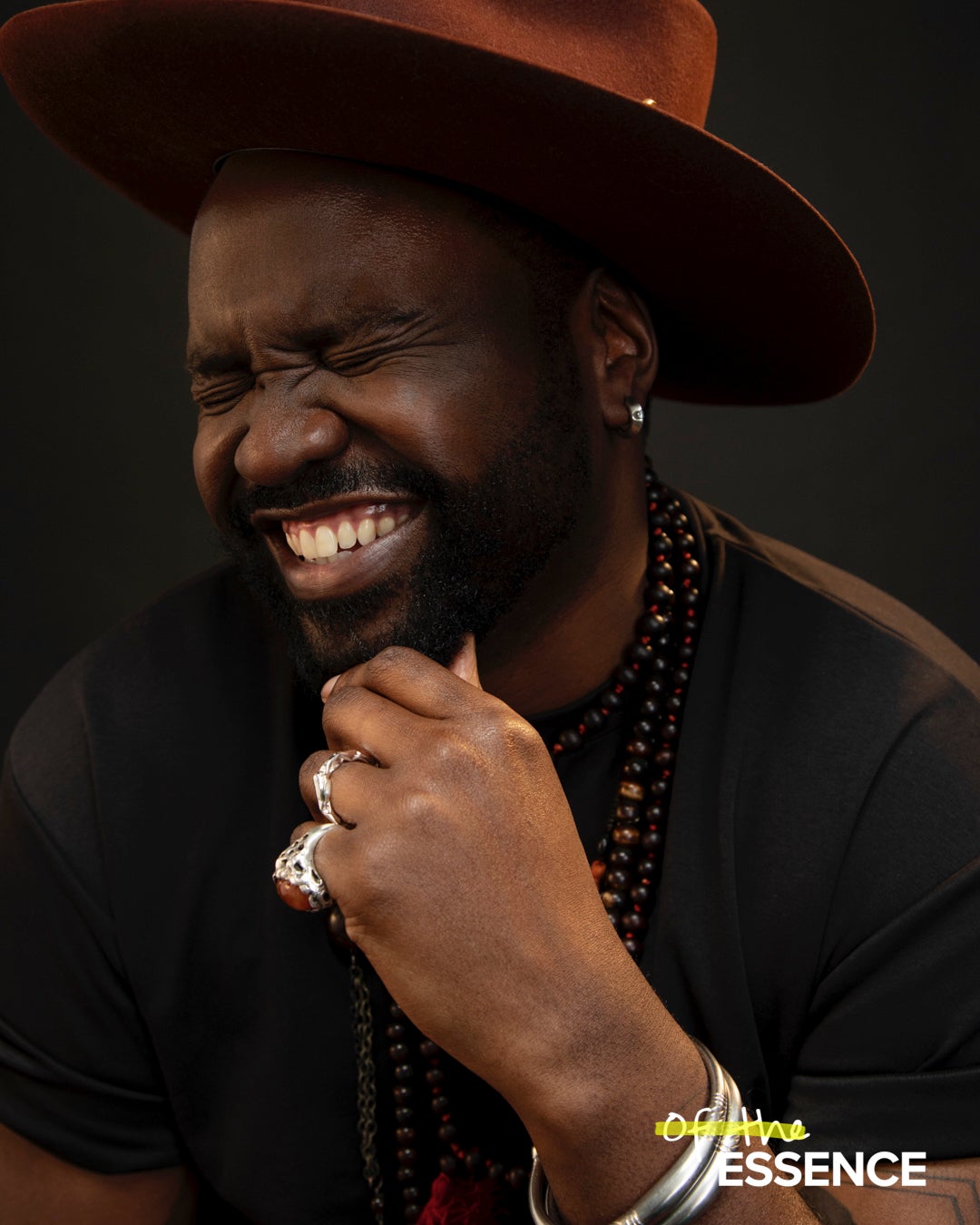
“The Academy should watch their backs if he doesn’t win,” Glover says of Henry’s nomination, which he pegs as long overdue for a performer of his caliber. “And I can say that–I’m in the Academy.”
While it’s clear that Henry has captured the minds and hearts of Hollywood, the actor says that his main focus remains on the imaginations and images of Black men. Constantly in the act of refusing to be pigeonholed in life or in his work, he wants the same for the characters he breathes life into and the Black audiences who bear witness.
“I do this for every tone of Black man there is, every shape of Black man there is. For every Black man that loves, however, they want to love. That’s why I do this,” the actor says. “I want there to be a representation of all the different shades and sides of us because we’re not just one thing. There are so many different shades to who we can be and who we are.”
Photographed by Myesha Evon Gardner – @myeshaevongardner
Styling by Alexander-Julian Gibbson – @alexanderjulian
Grooming by Ruth Fernandez b – @msruthiemakeup
Hair by Shunika Terry using Bask & Bloom Essentials at Rouge Artists – @shunikat
Photo Assistant: Mouhamadou “Fallou” Seck
Digitech: Ed Newton
Stylist Assistant: Brownie Brown
Tailor: Ron Wilcher
Photography Direction by Michael Quinn – @_mq______
Production by The Morrison Group- @themorrisongroup

